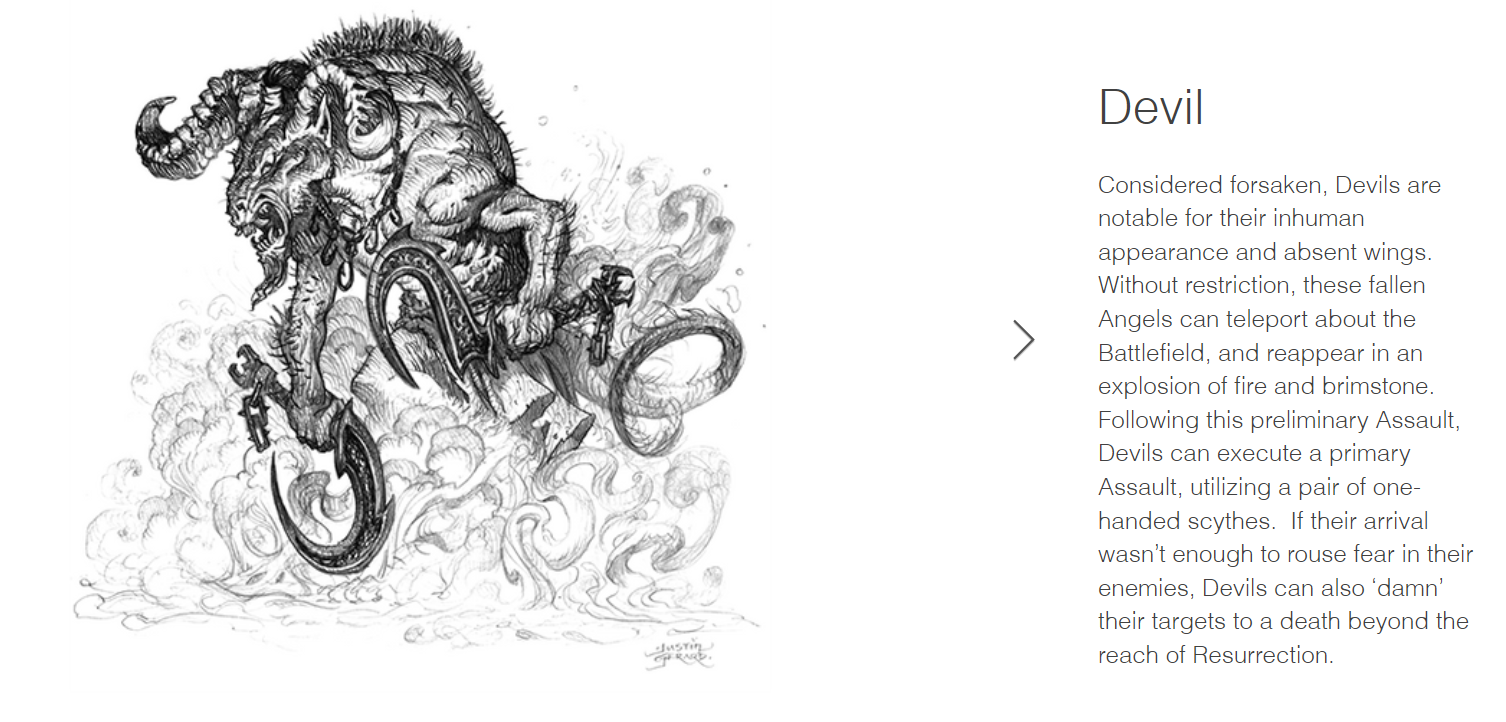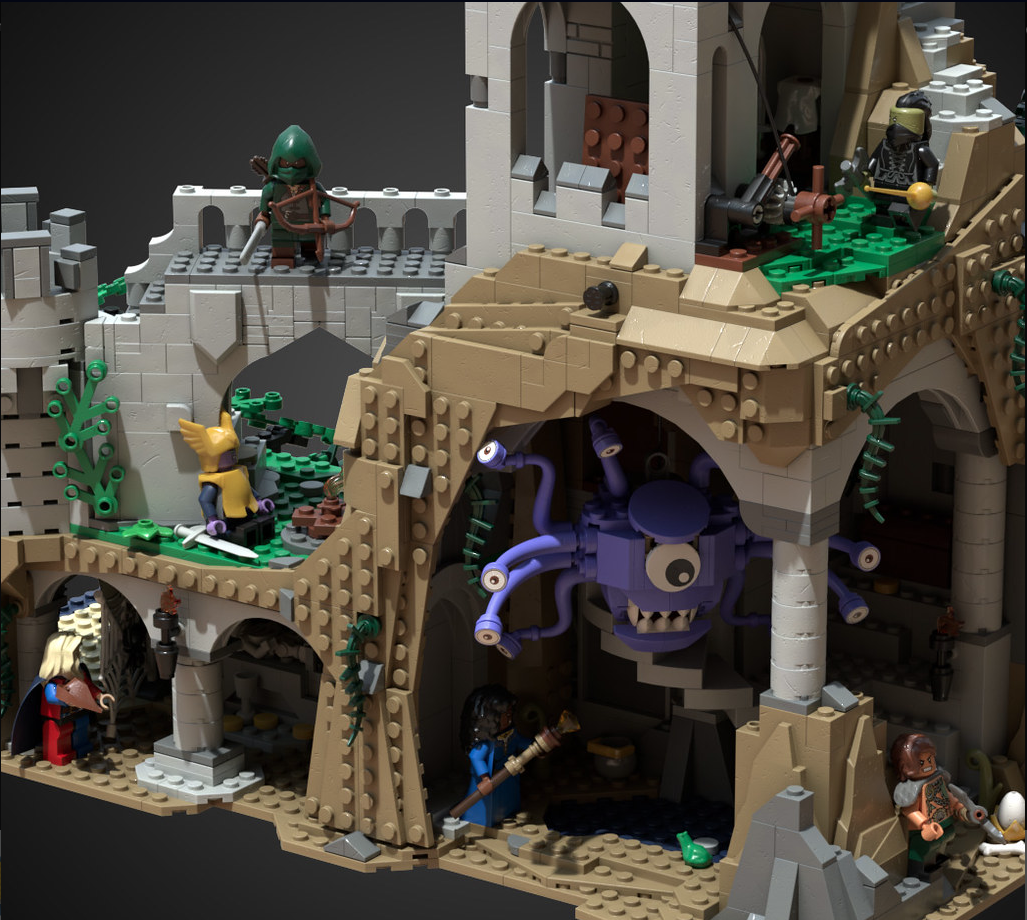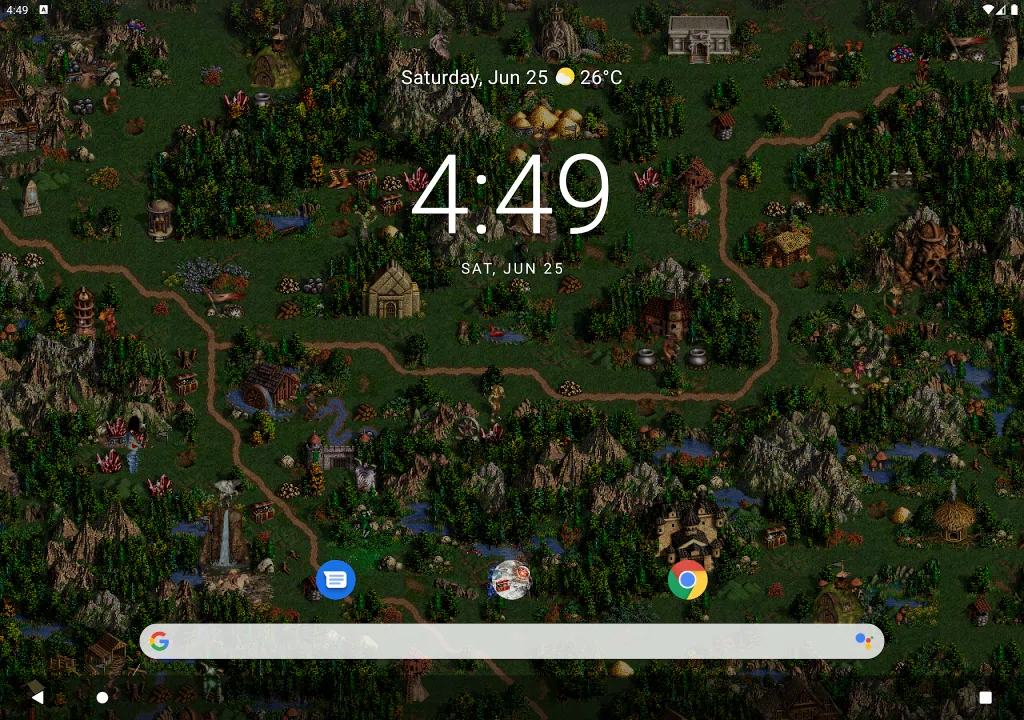"The fact of the matter is that action games, and particularly, first-person shooters, are among the biggest-ticket items in the electronic games arena, and have been for years. That’s not to say that RPGs are not popular -- but popularity is harder to achieve for individual RPGs because they are consistently held to a higher standard of excellence than more action-oriented games."
According to you, is Ubisoft handling the Might and Magic license the right way? Will you be tempted to give an action game a try? As usual, post your comments at the bottom of the article. By the way, Corribus' previous series of articles, On the Ethical Question of Cloning, can be found here.
The Doom of Might and Magic?
I am quite proud of that title. It has a sort of double meaning. But in order for you to get it, I have to put the title in context, don’t I?
By now everyone is probably familiar with the "other new Might and Magic title" -- Dark Messiah of Might and Magic. From the screenshots and relevant interviews, DMoMM appears to be a fantasy-based first-person "shooter" along the lines of Hexen or Heretic, those old games from the ‘90s that used the Doom and/or Quake engines with a fantasy twist to achieve varying degrees of success. In interviews the designers of DMoMM indicate that there will be RPG elements involved (implying that it’s not just going to be a dry shooter), though the extent to which those elements will affect gameplay is unclear at this point. It stands to reason, though, that this will not really be a 1st Person RPG of the likes of, say, the Elder Scrolls -- the designers make it clear that this is an action/shooter game that has RPG elements, not the other way around.
So the questions some fans have are: Is this the future of the Might and Magic RPGs? Why make a FPS and brand it with the Might and Magic name? And more pertinently: if Ubisoft bought the Might and Magic name, why did they make a FPS with it instead of the expected Might and Magic X?
These questions are all fair, and to answer them, it is first necessary to point out something obvious: DMoMM game really needs to have very little to do with the Might and Magic storyline to be successful. The game designers indicate that this game will take place in the Might and Magic universe, but really, the story of some wizard apprentice toting some artifact across a monster-ridden continent doesn’t seem like it can (or needs to) largely affect the direction of the over-arching Might and Magic storyline. In fact, the whole plot seems a little cliché, at least from the brief glimpses I’ve had of it so far -- so is it really necessary to contrive some thin connections to the Might and Magic universe? Shooters don’t really need much of a story anyway. All the player wants to do is make giblets out of the hordes of baddies that get in the way of the end credits, so why are we being fed a Might and Magic FPS rather than the epic role-playing game we’ve all been craving. So what’s the reasoning here?
The fact of the matter is that action games, and particularly, first-person shooters, are among the biggest-ticket items in the electronic games arena, and have been for years. That’s not to say that RPGs are not popular -- but popularity is harder to achieve for individual RPGs because they are consistently held to a higher standard of excellence than more action-oriented games. By this I mean that critics (and players) tend to judge only the best RPGs as truly worth playing, while merely mediocre FPS and action games will often be issued passing grades and (subsequently) lend themselves to the production of sequels. This may be partly due to a less-discriminating and less-mature fan base of FPS/action games vis-à-vis members of the RPG genre. It is also probably partly due to the relative time-commitments required for playing both types of games. Generally speaking, RPGs require much more of a personal investment of time and energy than FPS and action games, which can be played in small increments and do not necessarily need to be "completed" to be enjoyable. By contrast, RPGs (the good ones, anyway) are usually long and complex and RPG fans are less likely to give them a try if they’re not rated well. Furthermore, even the most derivative entries in the FPS genre can be enjoyable when played with a group of friends (i.e., multiplayer) a luxury that standard RPGs often do not have. What I’m getting at here is that it’s easier to make a successful FPS (in many cases, stunning graphics are sufficient) than it is to make a successful RPG, whose fans are more critical of gameplay and design elements and are less likely to be swayed in by fancy graphics and sound effects.
But Might and Magic is an RPG franchise, so Might and Magic X (the RPG) would likely be successful regardless of how good of a game it is, based on brand name alone, wouldn’t it? Yes, probably, but success is really all relative and is measured in degrees.

With the possible exceptions of Jedi Knight II and Rune, the implementation
of melee combat in a FPS always had limited success.
As I see it, Ubisoft probably had two goals upon purchasing the Might and Magic brand, in order of priority:
- Re-establish the faith of the fan-base in the brand name.
- Expand the sphere of influence of the brand name to attract new users.
Ubisoft clearly recognized that a successful HoMM5 is likely to accomplish goal #1, so that’s where they started. (A successful MM10 also would have served this purpose, but would have been riskier because the HoMM series was less damaged than the role-playing (MM). This is due to the fact that H4, despite its weaknesses, did enjoy some success and there still exists a devoted fan-base of this game even today, as opposed to MM9, which was almost a complete disaster.) Now consider if the second developed game was MM10 -- what purpose would that serve? Certainly, if it was good it could only strengthen the Might and Magic brand name further, but it really does not work towards goal #2, because the fan-bases of HoMM the strategy series and MM the role-playing series are already largely (though probably not completely) overlapped.
Ubisoft is clearly looking at a larger picture here. The fact of the matter is that while the potential fan-base for future Might and Magic games is substantial and established, it is really miniscule in the context of the electronic-gaming consumer base as a whole. This is especially so because, to this larger base of consumers, the Might and Magic brand is pretty much dead -- if H4 and MMIX were bad for the brand-confidence of hard-core fans, they were disastrous for the reputation of the brand-name as far as the average gamer is concerned. The last successful games bearing the Might and Magic name (HoMM III and Might and Magic VII*), were both published in 1999; that’s an eternity in the electronic games industry. The Might and Magic name is right now a metaphorical sunken island -- even if it’s raised above sea-level by a successful new entry in either the HoMM and MM series, it’s still going to be relatively neglected by everyone out there "on the mainland" who wasn’t around in 1999 to remember H3 or MM7, because the brand name doesn’t carry much weight with them. (And I guess if you want to take that metaphor to its ridiculous conclusion, H4 and MM9 were the disasters of Krakatoan proportion that blew the franchise off the continent and sunk it below the waves in the first place.) What that means is that while a successful H5 or MM10 would go a long way towards recovering what was damaged by 3DO’s demise (and would clearly elate most of the existing fanbase -- i.e., you, my faithful readers), by limiting themselves to sequels in the existing series, Ubisoft would be neglecting the vast potential that is the other 99% of the electronic-games consumers that are out there.
What does that mean? While the average gamer may not really be that attracted to H5, you can bet your rent on the fact that the average gamer will notice when a flashy new fantasy-based FPS based on Valve’s Source Engine hits the shelves, because, as I’ve said, successful FPS games are easier to make. And because that game has the words of Might and Magic tacked on the end of it, that’s a way of marketing the brand name to new users (goal #2). So when all the non-HoMM and non-MM players pick up DMoMM and play it, and like it, don’t you think they might give other games bearing the Might and Magic name a try?
I continue to be impressed by the way that Ubisoft has handled a highly damaged Might and Magic brand name. I have already discussed why I feel the direction that has been taken with H5 is the smart choice, and furthermore I feel that the decision to make a FPS-ish game bearing the Might and Magic name is just brilliant. It’s what 3DO should have done instead of dumping all their energy into those pointless HoMM-light games they put out (whatever they were called). The easy and obvious thing to do would have been to start work on H5 and MMX immediately, but wisely they did not, because in some way those games would be "marketably redundant" -- that is, you’re not going to be attracting many new players by making two games marketed at the same people, no matter how successful those games are. Instead, Ubisoft clearly plans for Heroes V to recapture the old audience, and Dark Messiah is intended bring in a new audience, to make the potential audience for future games bearing the Might and Magic brand even larger.
Of course, that leaves the question: Will Might and Magic X be developed? Most assuredly -- and it’s the perfect game to be done "third" because it is more likely to be of interest to any new fans allured by the FPS-RPG Dark Messiah hybrid than games in the Heroes series. And so while Dark Messiah may be cheekily called the Doom of Might and Magic in the sense that it is in some ways derivative of that classic game that launched the FPS genre so many years ago, it will I believe be quite the opposite of the other, more literal take on the title of this article: this game will, if done well, hopefully take the Might and Magic brand name to new levels of success rather than new levels of decrepitude. So, alas, unfortunately my title doesn’t have quite the double-meaning I had earlier insinuated that it might have had – but trust me, that’s a good thing!
* This isn’t a mistake; I consider MM7 to be the last very good Might and Magic game. MM8 was certainly playable, nothing like the calamitous MM9, but it was still a very tepid entry in the series.






